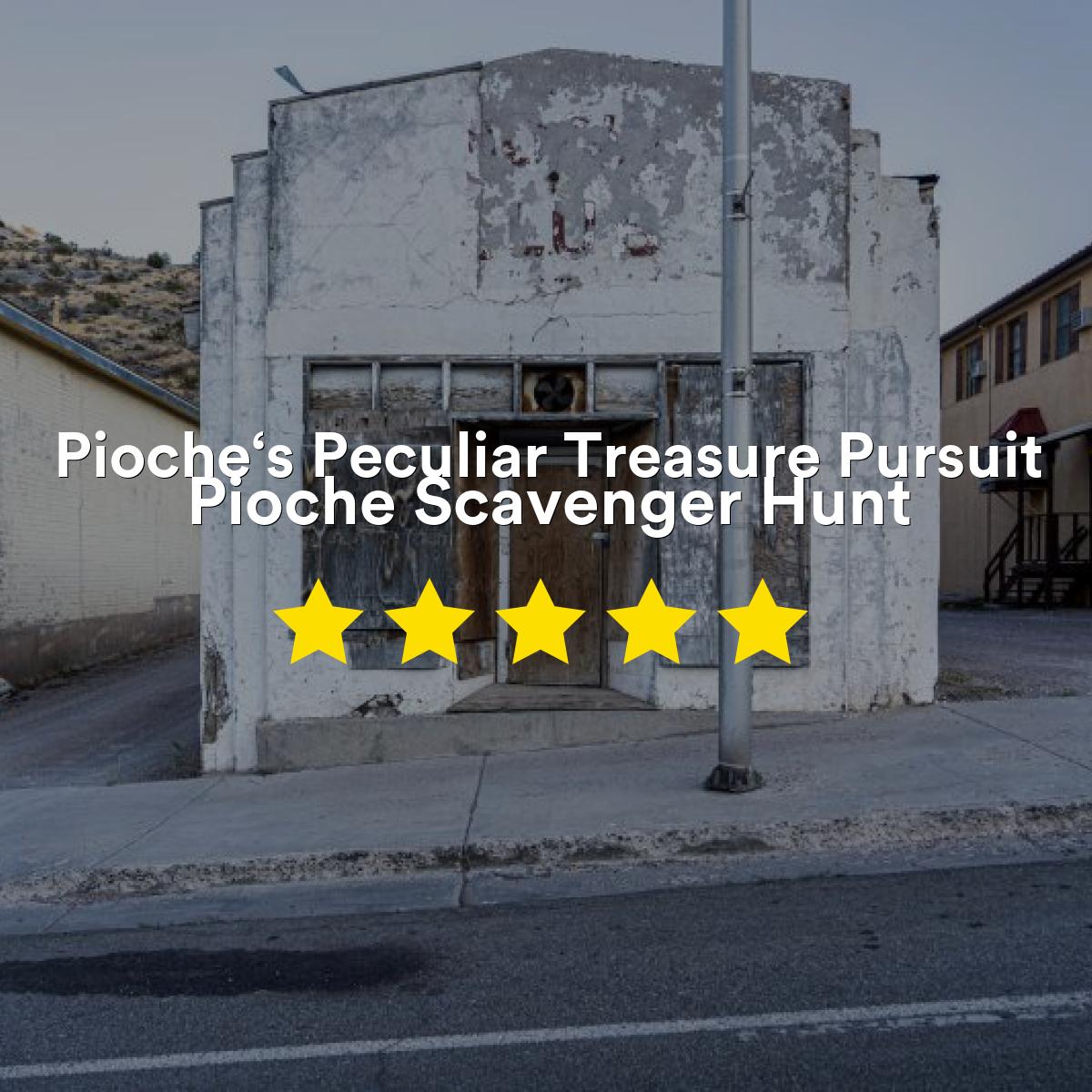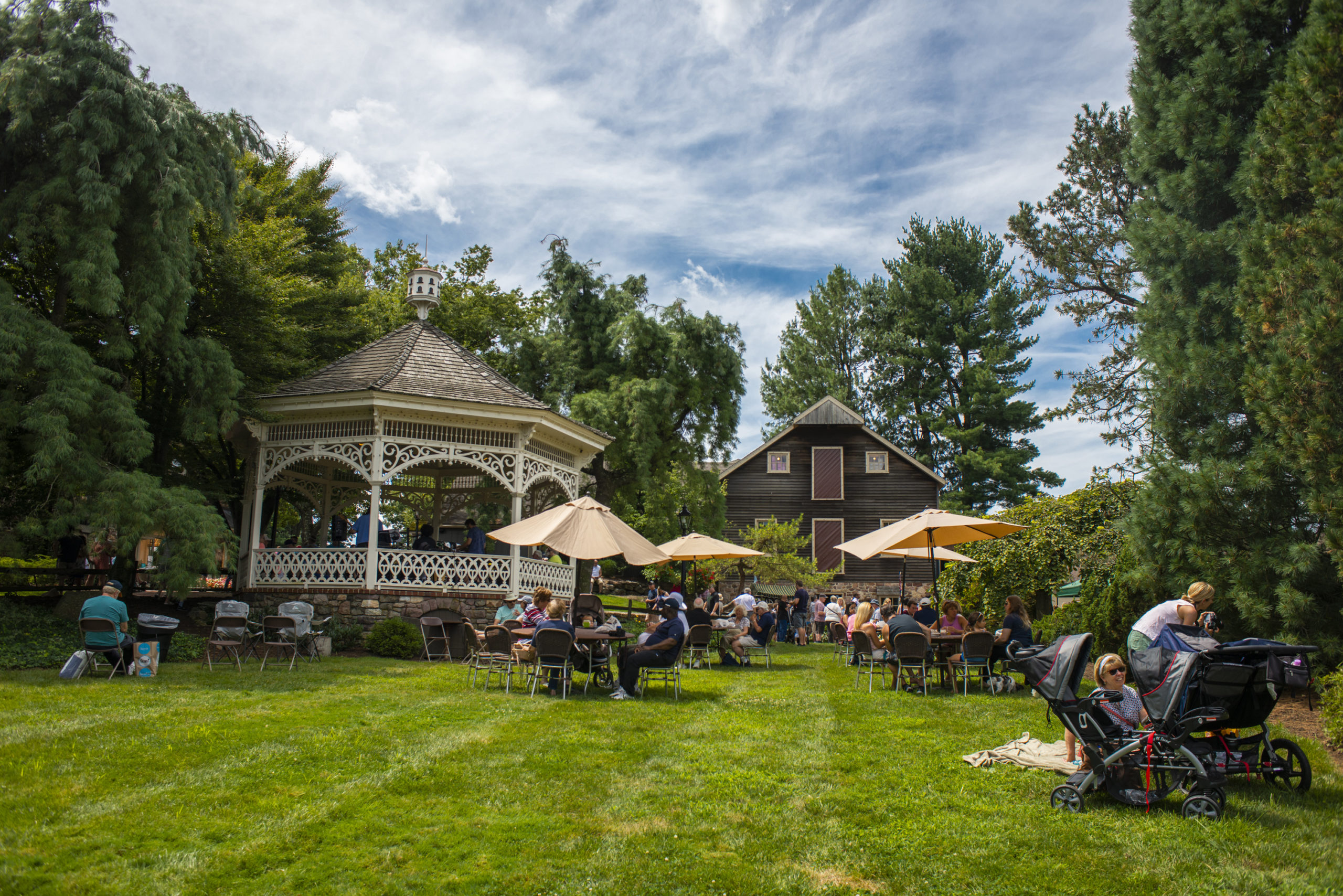
The Wandering Lifelines: How Pioche’s Peddlers Forged a Frontier Economy
In the annals of the American West, tales of rugged miners, fearless lawmen, and audacious outlaws often dominate the narrative. Yet, in the shadow of these legendary figures, another group of individuals played an equally crucial, if less celebrated, role in shaping the frontier: the peddlers. These itinerant merchants, with their wagons laden and their spirits undaunted, were the lifeblood of isolated boomtowns, connecting them to the wider world and bringing a semblance of civilization to the harshest landscapes. Nowhere was their presence more vital than in Pioche, Nevada – a town notorious for its lawlessness, its silver riches, and its profound isolation.
Nestled deep within the desolate ranges of Lincoln County, Pioche was a town born of raw ambition and silver fever. Discovered in the late 1860s, its mines quickly yielded immense wealth, drawing a motley collection of prospectors, entrepreneurs, and desperadoes. By the 1870s, it boasted a population of thousands, a bustling main street, and a reputation as one of the "toughest towns in the West." Boot Hill Cemetery, famously housing 72 victims of violence before a single person died of natural causes, stands as a grim testament to its volatile beginnings.
But for all its boom-and-bust energy, Pioche was profoundly cut off. Supplies had to be hauled hundreds of miles over treacherous, unpaved roads, making every commodity precious and often exorbitantly priced. Local general stores, while eventually established, couldn’t always cater to the diverse and ever-changing needs of a rapidly growing population. This was the fertile ground upon which the Pioche peddlers thrived.

The Peddler’s Call: A Sound of Hope
Imagine the scene: The dust-choked main street of Pioche, framed by hastily constructed wooden buildings, echoed with the clang of the blacksmith, the distant rumble of ore carts, and the occasional crack of a pistol. Then, cutting through the cacophony, a new sound would emerge: the distinctive call of a peddler, "Goods for sale! Fresh goods from the outside!" It was a call that promised newness, variety, and a fleeting connection to the world beyond the dusty confines of the mining camp.
These weren’t just salesmen; they were a lifeline. Their wagons, often dilapidated but meticulously packed, carried a fascinating array of goods that varied from the mundane to the luxurious. Dry goods were paramount: bolts of sturdy denim for miners’ clothes, delicate silks for the saloon girls and burgeoning middle-class families, spools of thread, buttons, and thimbles. Kitchen essentials included spices, coffee beans, sugar, and the occasional exotic fruit or vegetable that could survive the journey. Medicines, patent remedies, and liniments were always in high demand in a town where injury and illness were constant companions.
But beyond the necessities, peddlers also brought items that spoke to a longing for comfort, beauty, and refinement. Jewelry, ribbons, perfumes, small mirrors, and even books or sheet music offered a respite from the harsh realities of frontier life. For many, especially women who found themselves far from the established comforts of eastern cities, the peddler’s visit was a highly anticipated event, a chance to browse, socialize, and dream.
The Human Element: Who Were These Wandering Merchants?
The peddlers themselves were a diverse lot, united by their entrepreneurial spirit and their resilience. Many were immigrants – often Jewish, Chinese, or Italian – who had arrived in America with little more than ambition and a keen eye for opportunity. Facing discrimination in more established urban centers, peddling offered a path to independence, a way to earn a living and build capital, sometimes with the ultimate goal of opening a stationary store.
"They were often outsiders, people who understood what it meant to start from scratch," explains historian Dr. Sarah Thompson, specializing in frontier commerce. "They weren’t just selling goods; they were selling hope, a piece of the world beyond the mountains. And for many isolated communities, they were the only connection to that world."
Their success hinged on several key qualities: an encyclopedic knowledge of their inventory, a sharp business acumen, a good memory for faces and preferences, and perhaps most importantly, an unwavering ability to build trust. In a transient and often suspicious environment like Pioche, a peddler’s word and reputation were his most valuable assets. They often operated on credit, extending a helping hand to miners who were flush one week and broke the next, knowing that loyalty would eventually pay dividends.

Navigating the Nevada Wilderness: A Perilous Profession
The life of a Pioche peddler was anything but easy. The journey itself was fraught with peril. They traversed treacherous mountain passes, where a sudden snowstorm could mean death, and desolate stretches of desert, where water was scarce and temperatures soared. Their routes were long, often covering hundreds of miles between supply hubs in Salt Lake City or the larger Nevada settlements and the remote mining camps.
Banditry was a constant threat. The prospect of a peddler’s wagon, laden with valuable goods and often cash, was a tempting target for highwaymen. Many peddlers carried firearms, not just for protection against human predators but also against the wild animals that roamed the untamed landscape. Solitude was another challenge; weeks or even months could pass without meaningful human interaction beyond transactional exchanges.
"The sheer grit required to be a peddler in places like Pioche is almost unfathomable today," remarks local Pioche historian, Mary Johnson, whose ancestors settled in the area. "They faced extreme weather, rough terrain, the risk of disease, and the constant threat of robbery. Yet, they kept coming, driven by necessity and the promise of a livelihood."
Beyond the physical dangers, there was also the psychological toll. Loneliness, the constant pressure to make sales, and the ever-present uncertainty of their nomadic existence demanded a unique kind of resilience. Yet, they persevered, understanding that their service was not merely transactional, but deeply ingrained in the social fabric of the frontier.
More Than Merchants: Bearers of News and Culture
The peddlers’ role extended far beyond mere commerce. In an era before widespread newspapers, telegraph lines, or reliable mail service, they were invaluable conduits of information. As they traveled from one isolated settlement to another, they carried news, gossip, and stories from the outside world. They knew who was sick, who had struck it rich, who had gotten married, and who had fallen on hard times. They were living newspapers, their arrival eagerly anticipated not just for their wares, but for the stories they brought.
They also played a subtle but significant role in cultural diffusion. By bringing in goods from distant cities, they introduced new styles, technologies, and tastes to communities that might otherwise have remained insular. A fancy ribbon, a particular brand of coffee, or a newfangled tool could spark conversations and desires, subtly shaping the evolving culture of the frontier.
For women in particular, often confined to their homes or the small social circles of the mining camp, the peddler was a vital link. He offered not just goods, but a moment of connection, a friendly face, and a chance to discuss the world beyond their immediate surroundings. "A peddler’s visit could break the monotony of weeks of isolation," a diary entry from a frontier wife in a nearby settlement once read. "He brought not just calico, but conversation, and for that, I was most grateful."
The Fading Call: The Decline of the Peddler
The golden age of the Pioche peddler, like the town’s silver boom, was destined to wane. Several factors contributed to their gradual decline. The arrival of the railroad, though delayed for Pioche, eventually brought more efficient and cheaper transportation of goods, allowing local general stores to stock a wider variety of items at more competitive prices. The proliferation of mail-order catalogs, such as those from Sears Roebuck and Montgomery Ward, offered consumers an unprecedented choice of goods delivered directly to their nearest post office.
Improved roads and the advent of the automobile further diminished the need for itinerant merchants. People could more easily travel to larger towns to do their shopping, and supply chains became more robust. The wild, untamed frontier gradually gave way to a more settled, interconnected landscape.
By the early 20th century, the iconic image of the peddler, with his mule or wagon, had largely faded from the American landscape. In Pioche, as its mines slowed and its population dwindled, the demand for their unique services diminished. The era of the wandering merchant was replaced by a more organized and centralized system of commerce.
A Lasting Legacy of Resilience
Today, the Pioche peddlers remain largely unsung heroes, their contributions often overlooked in the grand narrative of the American West. Yet, their legacy is etched into the very fabric of frontier life. They embodied the grit, ingenuity, and entrepreneurial spirit that forged a nation out of wilderness. They turned isolation into opportunity, danger into determination, and the stark reality of the frontier into a market for both necessity and desire.
The next time you hear the story of Pioche, with its infamous Boot Hill and its silver-rich past, remember the wandering lifelines – the peddlers. They were more than just merchants; they were cultural ambassadors, news bearers, and essential connectors, who, with every mile traveled and every item sold, wove the isolated threads of the frontier into the broader tapestry of American commerce and community. Their call may no longer echo through the streets, but their spirit of resilience and resourcefulness continues to resonate, a testament to a forgotten but vital chapter in the history of the West.


